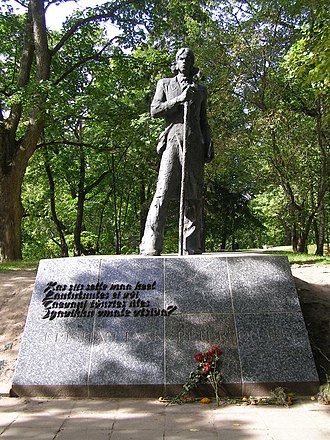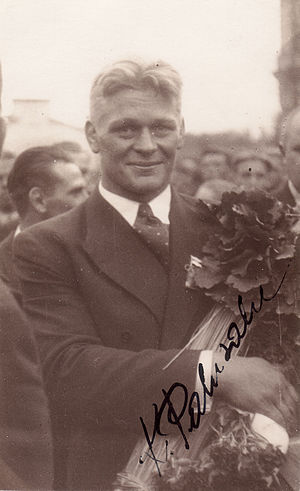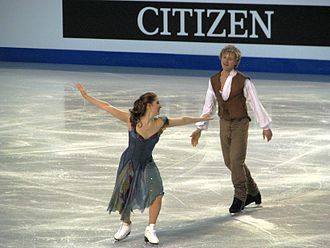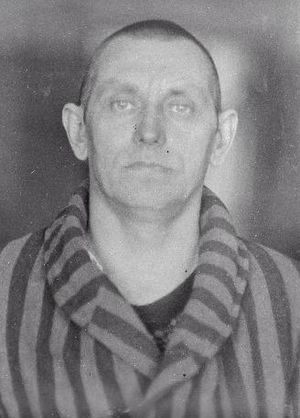Discover Your Roots
SIGN UPDiscover Your Roots
SIGN UPKristjan is a masculine given name of Scandinavian and Icelandic origin, meaning "Christ-Bearer." It is a variation of the name Christian and reflects a strong religious connotation. The name has been borne by notable individuals across different European countries, including athletes, politicians, artists, and other professionals, highlighting its widespread usage and cultural significance. Kristjan is a timeless and meaningful name that exudes a sense of faith and devotion, making it a popular choice for parents seeking a name with deep spiritual roots. With its rich history and widespread use, Kristjan carries a sense of tradition and strength, making it a meaningful choice for families looking for a name that holds both historical and religious significance.

Kristian Jaak Peterson, also known as Christian Jacob Petersohn, was an Estonian poet born on March 14, 1801, in Riga. He is celebrated as the herald of Estonian national literature and the founder of modern Estonian poetry. Despite his short life, Peterson's legacy continues to influence Estonian literature and language. His literary career was tragically cut short by tuberculosis, leading to his untimely death at the age of 21. Peterson's poetic works, including 21 poems in Estonian and 3 in German, showcase heroic-philosophical odes and pastorals, reflecting influences from ancient literature and pre-romanticism. His advocacy for the Estonian language and culture contributed to the Estonian National Awakening, marking a significant milestone in the country's history. Peterson's linguistic talents, philological treatises, and translations of Finnish mythological words further solidified his impact on national ideology and early Estonian literature. Despite the delayed publication of his works, Peterson's contributions continue to inspire and shape Estonia's literary and cultural landscape.

Kristjan Palusalu, born in Estonia in 1908, was a legendary heavyweight wrestler and Olympic champion. He made history by becoming the first and only wrestler to win both Greco-Roman and freestyle heavyweight events at the 1936 Summer Olympics in Berlin. His remarkable achievement led to widespread celebrations across Estonia, where he was hailed as a national hero. Despite facing hardships during the Soviet occupation, including imprisonment and forced labor, Palusalu's legacy continued to inspire his fellow Estonians. His enduring impact on Estonian sports is commemorated through the annual Kristjan Palusalu Memorial in Greco-Roman wrestling. Married to Ellen Saidla, Palusalu's influence lives on, and he remains a revered figure in Estonian history. His remarkable story of triumph and resilience has solidified his place as a symbol of national pride and sporting excellence in Estonia.

Kristjan Rand, born on June 12, 1987, is a retired Estonian ice dancer who achieved significant success in his career. He is the 2007 World Junior silver medalist and a three-time Estonian national champion from 2005 to 2007, partnering with Grethe Grünberg. Rand's skating journey began at an early age of about eight when he teamed up with Grünberg. Together, they made history as the first Estonian ice dancers to win a Junior Grand Prix (JGP) medal in 2005. Their partnership culminated in a remarkable silver medal at the 2007 World Junior Championships, a first for Estonia at an ISU Championships. After Grünberg's retirement due to injury, Rand teamed up with American ice dancer Caitlin Mallory. Their partnership led them to qualify for various ISU Championships, but they faced challenges when Estonia's citizenship regulations prevented them from competing at the 2010 Winter Olympics. Despite this setback, Mallory and Rand continued to compete at international events until Rand's compulsory one-year military service led to their temporary hiatus from competition. Although they planned to return, they did not compete again. Kristjan Rand's contributions to Estonian ice dancing have left an indelible mark on the sport.

Kristjan Seaver (1898 – 28 August 1941) was an Estonian Communist politician known for his involvement in the Soviet takeover of Estonia. Initially a member of the Ravila branch of the Bolsheviks, he played a role in the October Revolution in Estonia and was a key figure in the failed 1924 uprising in the country. Following his arrest in 1925, Seaver was sentenced to life in prison but was later granted amnesty in 1940. Subsequently, he participated in the Soviet occupation of Estonia and served as the chairman of the executive committee of Tallinn from January to August 1941. His tenure was marked by the disbandment of representational authority. However, in the face of the Nazi German invasion, Seaver and other Soviet authorities evacuated Tallinn. Tragically, he lost his life when the destroyer Yakov Sverdlov, the ship he was on, struck a naval mine in the Gulf of Finland. His role as mayor during the Nazi occupation was assumed by Artur Terras. Kristjan Seaver's life and political career reflect the tumultuous and tragic events that unfolded during the early 20th century in Estonia.

Kristjan Niels "K. N." Julius (April 7, 1860 – October 25, 1936) was an Icelandic satirical poet known for his influential work in both Iceland and the United States. After emigrating to North America in 1878, he initially resided in Winnipeg, Manitoba, before eventually settling in the U.S., living in Duluth, Minnesota. In 1894, Julius moved to North Dakota and became a prominent figure in the Icelandic settlements of Thingvalla Township. President Ólafur Grímsson of Iceland visited the township in 1999 to rededicate a monument honoring Julius at Thingvalla Lutheran Church, where the poet is buried. The church, unfortunately, suffered a devastating fire in 2003, though the Julius monument and the cemetery remained intact. Julius's poetic legacy continues to be celebrated, with his work showcased in the Poetry of K. N. Julius Kviðlingar (1920) from the Digital Horizons website. Neijmann, Daisy L., in her publication "A History of Icelandic Literature," also highlights the influence and significance of Julius's literary contributions.
All images displayed on this page are sourced from Wikipedia or Wikimedia Commons.We use these images under their respective Creative Commons or public domain licenses. Wherever applicable, author attributions and license information are provided. If you believe an image is used incorrectly or outside its license terms, please contact us so that we can review and correct the issue.